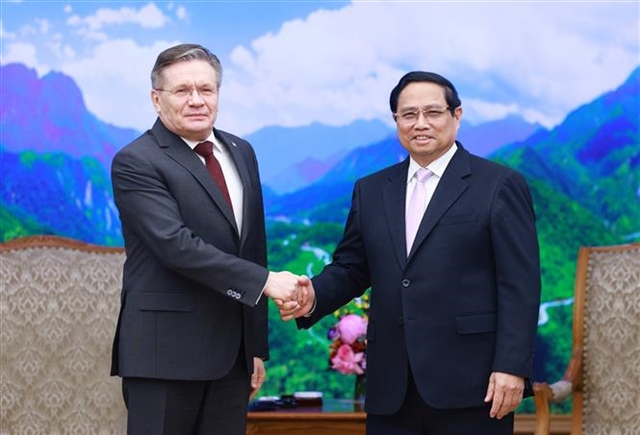PM calls for Russia’s support in high_ket qua bong da net
作者:Ngoại Hạng Anh 来源:Nhận Định Bóng Đá 浏览: 【大中小】 发布时间:2025-01-21 13:33:34 评论数:
PM calls for Russia’s support in high-tech advancement of nuclear science
January 13,ket qua bong da net 2025 - 21:29 |
| Prime Minister Phạm Minh Chính (right) receives Rosatom Director General Alexey Likhachev in Hà Nội on Monday. — VNA/VNS Photo |
HÀ NỘI — Prime Minister Phạm Minh Chính on Monday called on Russia, specifically its State Atomic Energy Corporation (Rosatom), to collaborate and support Việt Nam not only in developing nuclear power but also in advancing nuclear science and technology for peaceful purposes.
Receiving Rosatom Director General Alexey Likhachev in Hà Nội, the PM noted that Việt Nam always remembers and appreciates Russia’s assistance during its past struggle for national liberation and reunification, as well as in the present cause of national construction and development.
Việt Nam highly values its Comprehensive Strategic Partnership with Russia, in which energy cooperation for peaceful purposes and space research is a highly promising field, he continued.
The leader also emphasised Russia's cooperation with and support for Việt Nam in training scientists and experts in nuclear energy, designing and operating the Đà Lạt Nuclear Reactor, developing the Việt Nam-Russia Tropical Centre, and supplying radioactive pharmaceuticals for cancer diagnosis and treatment.
Việt Nam is poised to enter a new era - the era of the nation’s rise for prosperity and civilisation, he said, stressing Việt Nam’s goal of becoming a developing nation with a modern industrial base and upper middle-income by 2030 and a developed country with high income by 2045.
As part of this vision, Việt Nam plans to restart its nuclear power project to ensure energy security, support national development, and fulfill its commitment to achieving net-zero emissions by 2050, Chính said.
The PM expressed his hope that the Russian side will help Việt Nam in training personnel and maximising its potential, transfer technology, and share management expertise in this regard.
For his part, Likhachev said Rosatom wishes to continue strengthening cooperation with Việt Nam and implementing high-level agreements between the two countries.
Rosatom stands ready to cooperate with and assist Việt Nam in building nuclear power plants, establishing a new, modern nuclear centre, transferring technology, localising nuclear products, and developing nuclear science and industry, with a long-term vision spanning hundreds of years, he said. — VNS
